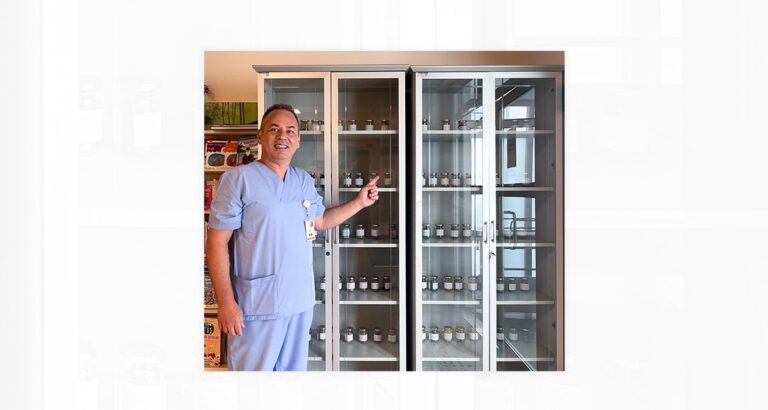At the heart of Türkiye, Istanbul, is the story of a doctor whose quest for healing led him to combine modern medicine with practices from the distant past.
Meet Dr Kanat Tayfun, a seasoned GP turned pharmaceutical executive, who says he felt a desire to have a different impact on patient care, which led him to explore how traditional medicine could complement modern medicine to potentially contributing to better health outcomes in a range of areas. problems.
Traditional medicine refers to a body of knowledge, practices and beliefs adopted and absorbed over generations within various cultures, used to promote health by preventing, diagnosing and treating physical and mental illnesses.
Solid scientific evidence for the effectiveness of traditional medicine is generally very limited. Although many people around the world find specific therapies helpful, in many cases this tends to be based on traditional use rather than exhaustive scientific research. However, the integration of traditional and modern medicine is increasingly the subject of scientific research on several fronts.
Kanat says his nascent efforts to explore the possible benefits of such integration were boosted when Turkey’s Ministry of Health introduced a law on traditional and complementary medicine in 2014. The move paved the way for certification of 15 diverse subgroups of traditional medicine. and integrated into the country’s health system.
Seizing this opportunity, Kanat embarked on what he describes as a transformative journey, earning certification in 13 of these traditional therapies. He works at Istanbul University of Health Sciences Training and Research Hospital, the country’s largest traditional and complementary medicine clinic, where he offers a range of treatments from acupuncture to music therapy.
“Modern medicine increasingly relies on laboratory and imaging results,” says Kanat. “Doctors are becoming more distant from patients, and a new generation of doctors is less inclined to perform physical exams.”
He says his approach to patient care is a testament to what he calls the power of integrative medicine. Kanat describes his practice as synergizing “the best of Western medicine” with “the wisdom of traditional practices.” By taking the time to listen, observe and interact closely with his patients, he integrates traditional methods with modern technology.
“Given time constraints, most doctors often do not have the opportunity to perform thorough physical examinations. In my clinic, we focus on listening, taking notes and understanding the patient’s condition,” says Kanat.
Kanat’s clinic sees a myriad of patients, some seeking respite from chronic pain and others seeking relief from autoimmune conditions. Here, as he describes it, patients find comfort in being truly heard, treated with dignity, and offered an individualized path to recovery.
In line with the historic Declaration of Alma-Ata of 1978, recognizing the right of individuals to participate in their health care, the Sixty-second World Health Assembly in 2009 recognized that traditional medicine is an integral part of health care primaries. By collaborating with primary health care providers, traditional medicine practitioners can integrate their knowledge and experience with modern medical practices, with the goal of achieving more holistic and impactful outcomes for patients.
Kanat’s efforts extend far beyond the walls of her clinic. Recognizing the potential of traditional medicine, Kanat collaborated with the WHO to produce a report on the integration of traditional and complementary medicine into global health care practices.
Kanat’s clinic and its patient-centered approach have sparked discussions about the potential inclusion of traditional medicine in Turkey’s national healthcare coverage.
“The success of the clinic is mainly based on word of mouth. Patients recommend us to their family and friends because they see positive results and are satisfied with the care,” he says.
As a healthcare professional, Kanat describes his role as bridging the gap between ancient practices and modern science. By pursuing compassionate care and integrating various therapies and approaches, he says he wants to leave a legacy demonstrating the healing potential of this combination.
Note: The first WHO Global Summit on Traditional Medicine will take place on 17-18 August 2023 in Gandhinagar, India, to mobilize political commitment and evidence-based action for traditional medicine. Co-hosted by WHO and the Government of India, the event will bring together stakeholders, such as practitioners, policymakers, academics and organizations, to exchange best practices and evidence on the role of traditional medicine in health and sustainable development, highlighting the need for a scientific approach to evidence to demonstrate real impact.
